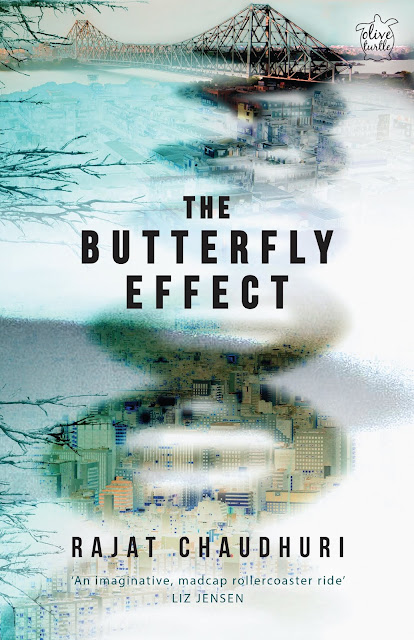Indian Novel’s Story Parallels Deadly Corona virus Outbreak
An Indian novel published
in 2018 and set in various parts of Asia and Europe was uncannily prescient
about the possibilities of accidental or otherwise release of biotechnology
products and how it can trigger an epidemic comparable to the ongoing
coronavirus outbreak. In this novel, The
Butterfly Effect (Niyogi Books) by Rajat Chaudhuri, North Korean agents
steal an untested genetically modified rice variety, from a UK lab and carry it
back to Korea, which cross-pollinates crops and triggers an epidemic of rapid
ageing across the continent with high fatalities. The prestigious Nature journal
reported last
week about the arrest of a Harvard chemistry chief for making false statements
about receiving research funding from China. It is alleged that he received `hundreds
of thousands of dollars from the Wuhan University of Technology (WUT) in China
and agreed to lead a lab there’. Although involvement, if any, of the arrested
professor cannot be assumed or rejected at this stage, it is well known that
Wuhan is the epicentre of the coronavirus outbreak. In the Indian novel, a
scientist working in Britain unknowingly engineers a dangerous variety of GM
rice which wreaks havoc among the Asian population. The Butterfly Effect is listed as one of the
`Fifty Must-Read Novels about Eco-disasters’ by the Book Riot (US) website and
the author has presented it at the Museum of Science Fiction (Washington),
Sahitya Akademi (Delhi) and several other places...According to Chaudhuri who
has also written about these issues in the mainstream media, `as a
writer and activist, I have been aware of the dangers posed by GM food,
virus-mediated gene delivery and a gamut of other technologies which if used
without precaution can have unimaginably severe consequences. My novel
recognises these dangers and amplifies them to a fictional scale.” he
added.
About The Book:
The Butterfly Effect by Rajat Chaudhuri.
A self-obsessed Calcutta detective who goes by his last
name `Kar’, an enigmatic internet cafe hostess in Seoul,
and a hotshot geneticist labouring away on a top-secret
corporate project. These are just a few pieces in the puzzle that
need to be put together to explain a world sucked into the
whirlpool of the `butterfly effect’.
In the decaying capital city of a near-future Darkland, which
covers large swathes of Asia, Captain Old – an off-duty policeman
– receives news that might help to unravel the roots of a scourge
that has ravaged the continent. As stories coalesce into stories –
welding past, present and future together – will a macabre death
in a small English town or the disappearance of Indian tourists in
Korea, help to blow away the dust of time?
From utopian communities of Asia to the prison camps of
Pyongyang and from the gene labs of Europe to the violent
streets of Darkland – riven by civil war, infested by genetically
engineered fighters – this time-travelling novel crosses
continents, weaving mystery, adventure and romance, gradually
fixing its gaze on the sway of the unpredictable over our lives.
About the Author: Rajat Chaudhuri is the
author of Hotel Calcutta,
Amber Dusk and the Bengali
short story collection
Calculus. He writings has won him
a Charles Wallace Creative Writing
Fellowship, UK, a Hawthornden
Castle Fellowship, Scotland, a Korean
Arts Council-InKo Residency in South
Korea, and a Sangam House residency.
He has written for Outlook magazine,
American Book Review, Asian Review of
Books, The Telegraph, Eclectica, among
others. Chaudhuri has been a climate
change advocate at the United Nations
(New York). Trained in Economics, he
has worked for international rights
advocacy groups and for a Japanese
consular mission in his home town,
Calcutta.
You can buy this book from Amazon.





Comments
Post a Comment